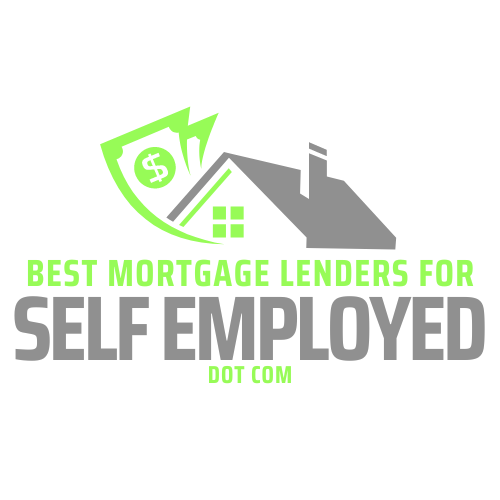FHA vs. Conventional Loans for Self-Employed Borrowers: Which is Better?
Unveiling the Best Mortgage Option: FHA vs. Conventional Loans for Self-Employed Borrowers
Navigating the Mortgage Maze: A Challenge for the Self-Employed
Choosing the right mortgage can feel like a complicated puzzle, especially for self-employed individuals with unique income structures. FHA loans and conventional loans stand as two prominent options, but which one reigns supreme? This blog post dissects the advantages and limitations of both, empowering self-employed borrowers to make an informed decision.
Understanding Loan Options for Self-Employed Borrowers
FHA Loans: A Stepping Stone to Homeownership for the Self-Employed
FHA loans, insured by the Federal Housing Administration, are renowned for their relaxed entry requirements. This makes them particularly attractive for self-employed borrowers. Here's why FHA loans might be a perfect fit:
- Lower Credit Score Requirements: FHA loans are attainable even with a less-than-stellar credit score, offering a welcome alternative for self-employed individuals whose credit history might not be picture-perfect.
- Smaller Down Payments: With a down payment as low as 3.5%, FHA loans make homeownership a more realistic prospect for self-employed borrowers who may have less cash readily available.
- Higher Debt-to-Income Ratios: FHA loans allow for more flexibility regarding debt-to-income ratios, which can be a lifesaver for those with fluctuating income streams.
Conventional Loans: Unveiling the Pros and Cons for Self-Employed Borrowers
Conventional loans, offered by private lenders or entities like Fannie Mae and Freddie Mac, represent another viable option. Let's explore what they have to offer:
- Potentially Lower Interest Rates: For self-employed individuals with strong credit scores, conventional loans may translate to lower interest rates compared to FHA loans.
- Absence of Mortgage Insurance (After 20% Equity): Conventional loans only require private mortgage insurance (PMI) if the down payment is less than 20%. Once equity reaches 20%, PMI is typically cancelled, eliminating an ongoing expense.
However, conventional loans also come with stricter requirements:
- Higher Credit Score Requirements: Conventional loans typically demand higher credit scores compared to FHA loans, potentially putting them out of reach for some self-employed borrowers.
- Larger Down Payments (Typically): Conventional loans often require larger down payments, ranging from 5% to 20%, which can pose a hurdle for self-employed individuals with limited cash reserves.
Key Considerations When Choosing Between FHA and Conventional Loans
When deciding between FHA and conventional loans, several key factors deserve your attention:
- Mortgage Insurance: FHA loans necessitate both upfront and annual mortgage insurance premiums, regardless of the down payment. Conventional loans only require PMI with a down payment less than 20%, and it can be eliminated later.
- Loan Limits: FHA loans have limitations on the loan amount, which can be a constraint for self-employed borrowers seeking high-value properties. Conventional loans often have higher limits.
- Interest Rates: FHA loans might offer lower rates for borrowers with lower credit scores. However, conventional loans may provide more favorable rates for those with excellent credit.
FHA vs. Conventional Loans: Selecting the Optimal Choice
Matching Your Needs with the Perfect Loan: FHA or Conventional?
The ideal loan for self-employed borrowers hinges on their unique financial circumstances:
- FHA Loans: A Boon for Lower Credit Scores and Variable Income: For self-employed individuals with fluctuating income or less-than-perfect credit scores, FHA loans offer a more accessible path to homeownership. Additionally, FHA loans allow the use of down payment assistance through gifts or grants, which can be advantageous for self-employed borrowers who prefer to retain cash for business purposes.
- Conventional Loans: Potential Cost-Effectiveness with Excellent Credit: Self-employed borrowers with strong credit scores and the ability to make larger down payments might find conventional loans more cost-effective in the long run. Eliminating PMI through a sufficient down payment can lead to significant savings over time.
Conclusion
Selecting the Winning Loan: A Well-Informed Decision
The choice between FHA and conventional loans for self-employed borrowers boils down to a careful evaluation of their credit score, available down payment, and the desired property value. Weighing the pros and cons of each option in light of your financial flexibility and long-term business goals is crucial for making an informed decision.



BestMortgageLendersForSelfEmployed.com is not a mortgage company or mortgage lender. We are a source for information. We connect to the leading Single Close Construction specialists in the nation.
QUICK LINKS
SSL Certificate

Contact Us
Our goal is to connect you with the absolute best lender in your area that specializes in working with self-employed borrowers. Click here to get in touch with us.
Copyright 2024 All rights reserved BestMortgageLendersforSelfEmployed.com. Created by AGENCY NEXT.
For information purposes only. This is not a commitment to lend or extend credit. Information and/or dates are subject to change without notice.